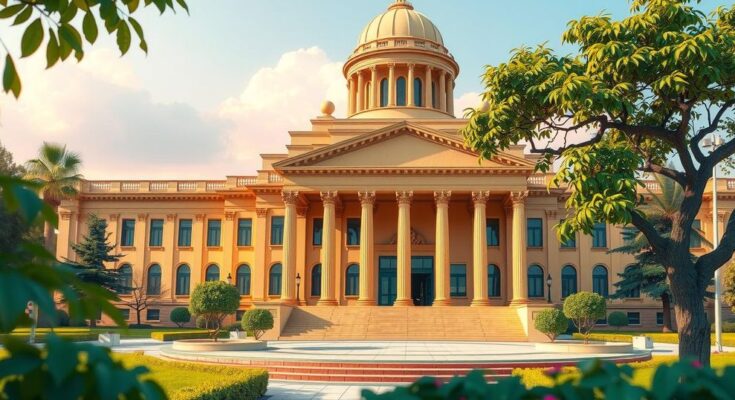Argentina’s Congress has approved President Javier Milei’s request for a new IMF loan to support the economy amidst existing debt of $44 billion. This decision, influenced by Milei’s commitment to cutting spending, has sparked protests against austerity measures. However, inflation rates have reportedly decreased since Milei assumed office, creating a complex economic landscape.
In a significant development, Argentina’s Congress authorized President Javier Milei on March 11 to negotiate a new loan agreement with the International Monetary Fund (IMF). This request comes in addition to the existing $44 billion debt that Argentina owes the IMF. The initiative aims to bolster the central bank’s foreign currency reserves and to address upcoming debt payments. The specific details regarding the new loan amount remain undisclosed.
Argentina’s president is mandated by a 2021 law to secure approval from both chambers of Congress for IMF funding, but only requires the backing of one chamber to proceed. The recent vote concluded with 129 in favor, 108 against, and six abstentions in the Chamber of Deputies, granting Milei the authority to finalize the agreement. Despite his libertarian party being a minority in Congress, Milei has successfully formed coalitions to advance his fiscal policies.
While the vote took place, protests erupted near the legislature, with demonstrators opposing both Milei’s austerity measures and his negotiations with the IMF. Many claimed that past agreements with the IMF had worsened living conditions in the country. Incidents of violence and injuries had marred earlier protests, yet the demonstration on the day of the vote was relatively peaceful in comparison.
Milei asserts that the new IMF loan will enable the government to repay debts to the central bank and combat persistent inflation, which has plagued Argentina. The nation currently ranks among those with the highest inflation rates globally. Since taking office in December 2023 and implementing cuts to public spending, inflation has decreased significantly, although poverty levels have simultaneously increased.
Discussions with the IMF commenced in November 2023 regarding a new “extended fund facility” to replace an existing agreement from 2022. This facility aims to refinance Argentina’s debt and facilitate payments on the record-breaking $44 billion loan initially negotiated by former President Mauricio Macri in 2018.
In summary, President Javier Milei has obtained Congressional approval to seek a new IMF loan, aiming to strengthen Argentina’s foreign currency reserves and manage its debt obligations. While this move has received legislative support, it has triggered protests reflecting public discontent with austerity measures and the government’s past agreements with the IMF. Amid high inflation and rising poverty, Milei’s administration continues to navigate complex economic challenges as it seeks financial assistance from the IMF.
Original Source: www.rfi.fr




